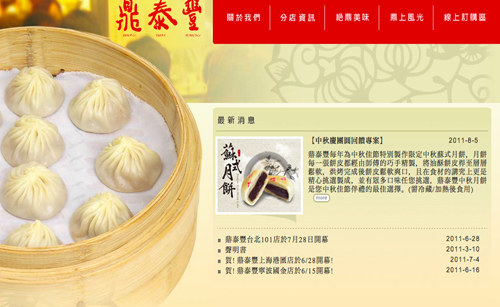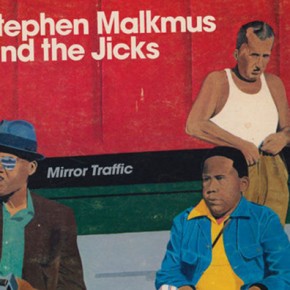I’m standing in line to enter Taipei’s Din-Tai-Fung, one of the world’s most famed dumpling restaurants, when they arrive in a double-decker bus: rows of white people neatly stacked on top of each other, gazing out through tinted windows at a world that isn’t theirs. They begin clambering off the bus a little ways up from where I stand and even before they reach the line, even before I hear them speak, I know they are Americans.
I can’t, however, tell you what it is about them that so wholly convinces me of this fact. Is it the bag of Doritos the young blond girl with the Uggs is coyly snacking on, a step away from the others? Is it the peculiar, languorous gait of the fat elderly couple? Is it the scheming sidelong glances the young brothers cast at each other before breaking into a run down the sidewalk? What is it about them that is so American?
In truth, it is the amalgamation of innumerable little details too fast and too small to be consciously considered – a school of tiny, translucent fish swimming as one, deep down in the worried rivers of my subconscious. Yes, these are Americans.
I watch them, now, as they gather behind their tour guide’s American flag; I listen in on their inane, bubbly chatter. The clumsy hodge-podge of it all makes me a bit anxious, like the sudden recollection of a bad dream dreamt long ago. Is this me? Was it ever? I wonder if the restaurant staff will assume I’m with this group and the thought vaguely upsets me. Clearly, I’m different. And somewhere, deep down, I want everyone to know that.
I can remember my first trip to Din-Tai-Fung. I was brought here on just my third day in Taiwan by a painfully shy young girl getting her Master’s degree in English literature, whose family had agreed to house me for a week or two. She served as my guide during those days, introducing me to Taipei’s tourist attractions, one by one. I remember reveling in the feeling of being immersed in a place so completely different than any I had been in before, a blur of tea shops and temples, hot springs and insectariums. It was also the first time I’d ever met a girl who was terrified of butterflies. And here, on the second floor of this very restaurant, too-hot dumpling broth had scalded my tongue and dribbled off of my chin. Even though I had lived in Beijing before, I really had no idea how to properly eat soup dumplings.
I am definitely not a tourist anymore. I’m no longer taken aback by the ubiquitous growl of a thousand scooters, present always on each and every road of Taipei. I’m not shocked by the smell of shit permeating the air of the city’s intensely crowded night markets, where people gather around mobile food carts selling assorted organs and tofu soaked in rotting vegetable matter. I live here now, and these things are just a part of day to day life. But that life has become something I can’t readily share with those around me, nor with those back home.
Still, I would be lying if I said I didn’t enjoy it. For someone who has always taken pride in being an independent thinker, who has always reveled in his “Other-ness”, living abroad can be an intoxicating drug. The imaginary wall between me and everyone else that I built back home is far more convincingly conceived here than it was back in the States. The cumulative effect of myriad concrete details, it can be summed up in a single sentence: I live in Taiwan, but I am not Taiwanese. This is true now, and it will always be true.
Not only is this a fact, but it is obvious to even strangers on the street. Because I am white, this Otherness is palpable at all times, but it extends far deeper than my outward appearance. There is no escaping the fact that I am, essentially, quite different from everyone else here. I was not born into a world steeped in Confucian tradition, so even when I meet Taiwanese who think like me, who show wild individualistic streaks, I have no sense of what they are actually rebelling against. They remain a mystery to me, and me to them. And even when I return back to America, to the culture in which I was raised, I become that guy who lives in Asia. It would seem, then, that my isolation is complete.
And yet, there is something very disingenuous about characterizing my experiences in this way. In the end, traveling is not about building walls. I know this because as all these thoughts criss-cross my mind while standing in line for my dumplings, I feel that all-too-familiar mix of self-righteous indignation and crushing guilt. It’s a stew I’ve been cooking in for a very long time, since long before I ever thought of coming to Asia. And I know I’m not the only one. The true source of the alienation I experience on a day to day basis is, at its core, as common as a can of Coca-Cola: it can be had here, it can be had there. It can be had everywhere. Everyone knows what it tastes like.
Alienation is a global phenomenon, and it is being amplified by our increasing interconnectedness. I see it everywhere — perhaps because I seek it out. To say that I am alone here, or anywhere, is a half-truth, at best. This not fitting in, after all, forms the backbone of my most cherished relationships. Like the tourists I am so eager to distance myself from, but also like those who have never left the relative safety of their homes, I am gazing out upon a world that will never really be mine. This is what is tying my stomach in knots, but this is also what ties me to other people, for better and for worse. For me, and many others, this is the ocean into which all rivers flow.
I walk away from the restaurant’s line having resolved little of the conflict burning inside me. As I turn the corner, I look back at the tourists and experience one more intense moment of unreality as the older brother snarls at the younger one, who is clinging to his mother’s pant leg, sticking out his tongue.
I keep walking. There is a dumpling place a little ways up that is half the price and nearly as good. What more can I ask for, really?





I had soup dumplings for the first time in Singapore last November. The entire experience intrigued me…deciding which ones to order, placing the order well before we were seated, the excitement when they were delivered to the table, the disappointment when I picked one up and broke it before I got to bite into it…the joy when I ate the first bite and the broth flowed into my mouth!
I’m a pretty big fan of soup dumplings, too. I hear in Shanghai they have dumplings the size of a grown man’s fist that you drink the broth out of with a straw. I gotta find those somewhere…
Well written! I sympathize entirely, although I didn’t learn nearly as much about how to eat soup dumplings as I was hoping to from reading this article..
Anyway, you do a good job summarizing a feeling that can’t easily be explained. Its the feeling that makes living in Beijing bearable even when the air is terrible and society has so many fractures you wonder how any government could produce enough political duct tape to keep it together..
Taiwan is free from those problems, but its expat population also hasn’t drummed up the community awareness that Beijing’s and Shanghai’s each have. It’s a real shame and I hope to do more for it someday.
Thanks for reading Josh. If you want some more soup dumpling info, you can click on the second image for a closer look in three languages 😉
It’s true what you say about the difference between Beijing and Taipei’s expat communities. I just wonder whether Taipei is big enough to support a bustling ex-pat community in the same way.
Thing is, whats the point in going abroad if it’s only to hang out with other expats?
For me, personally, there is little point to going abroad if its only to hang out with other expats. But many do it, and there are many reasons why — how people deal with feelings of alienation certainly being one of them.